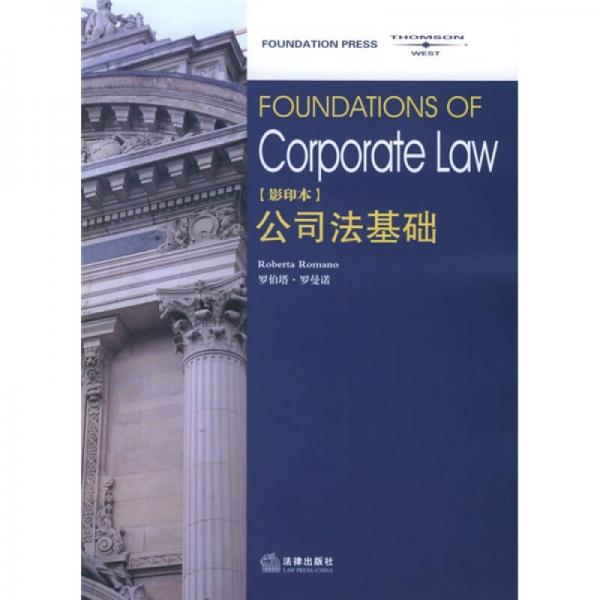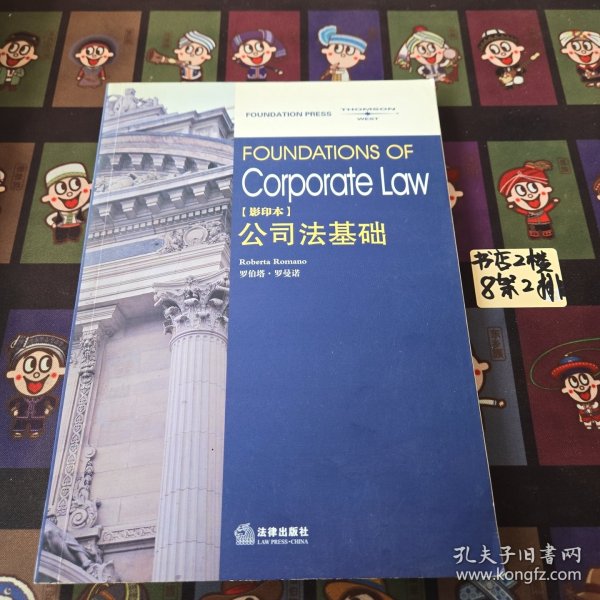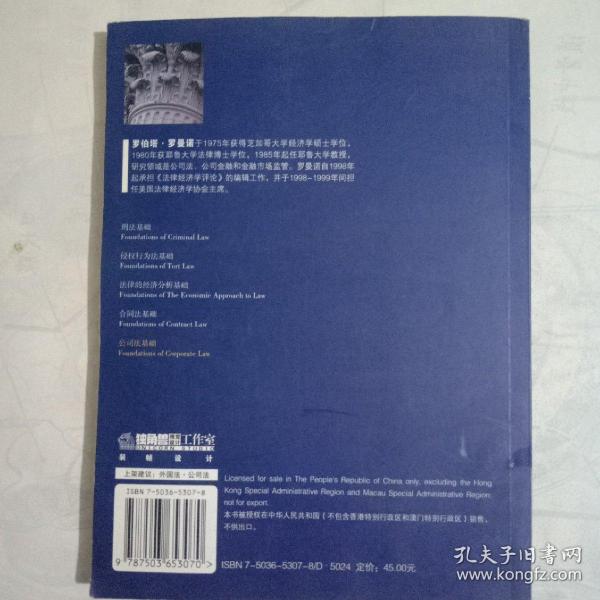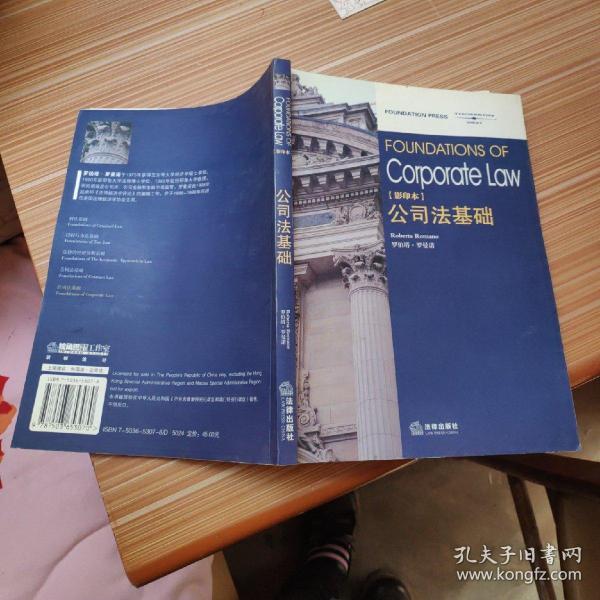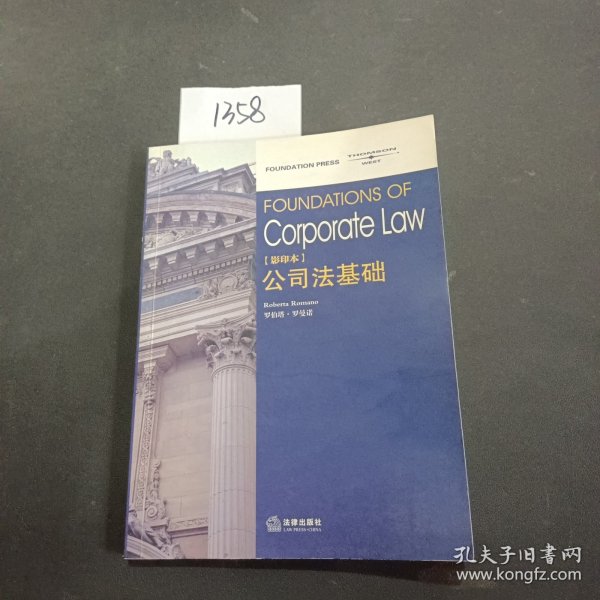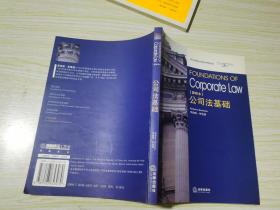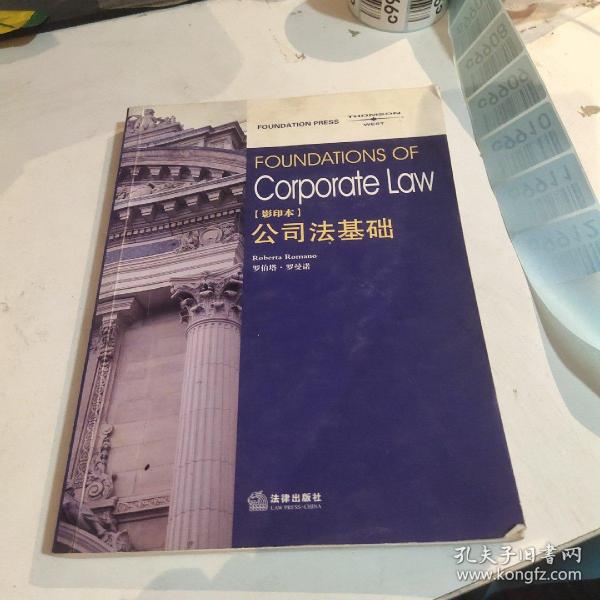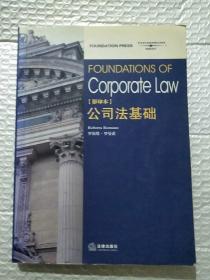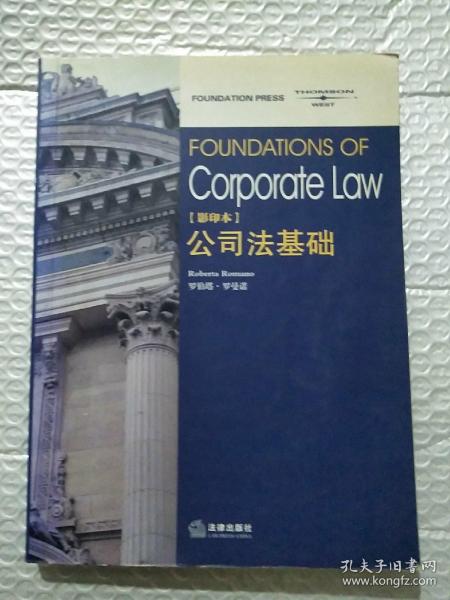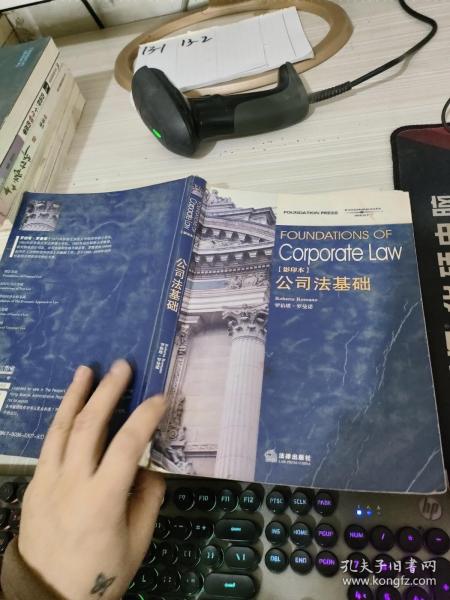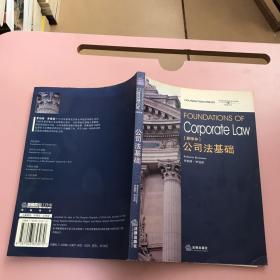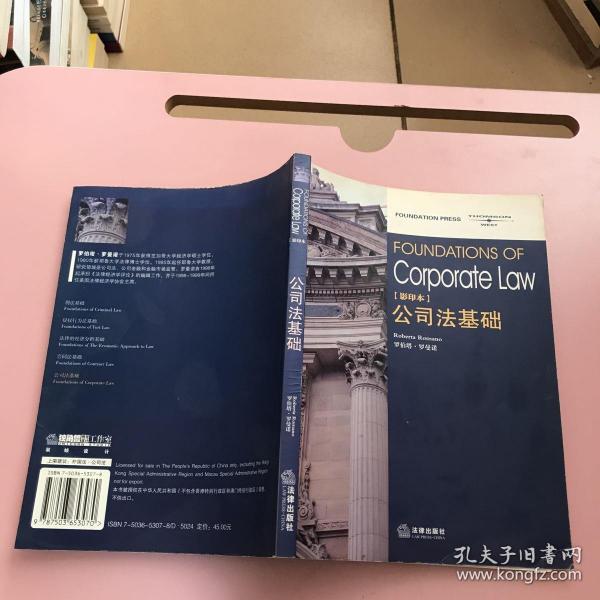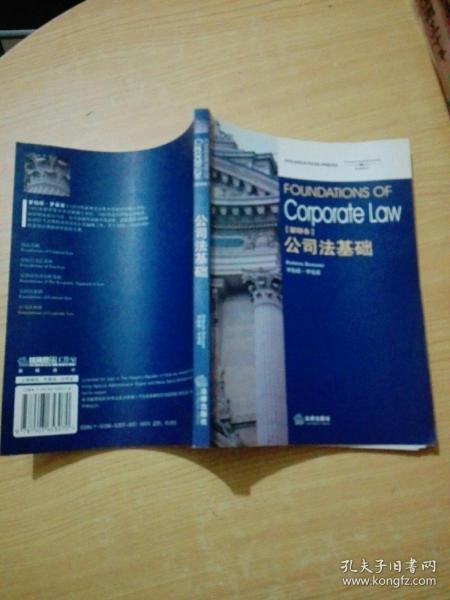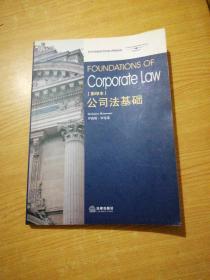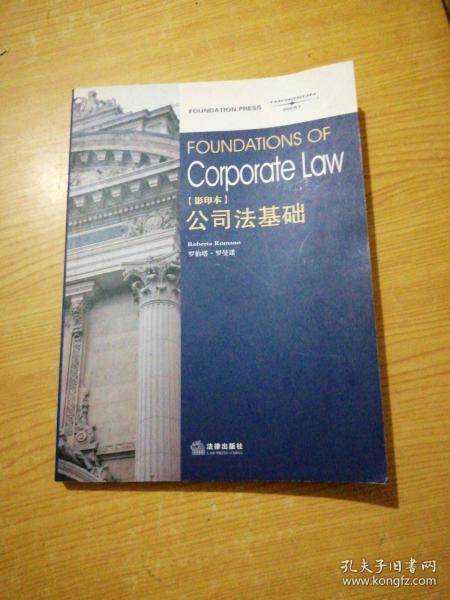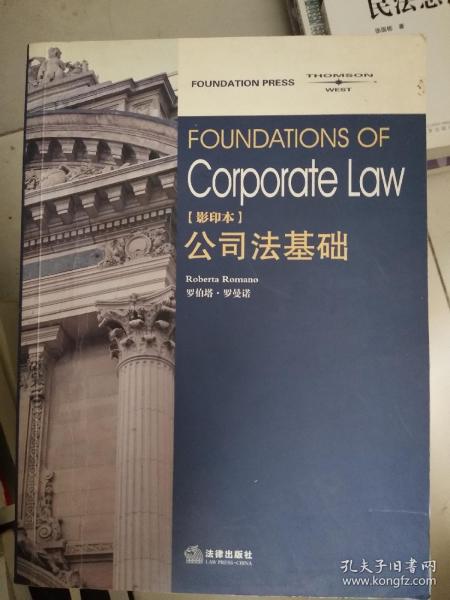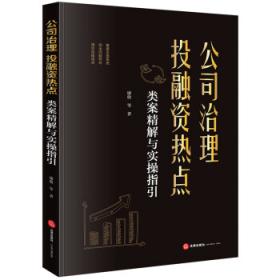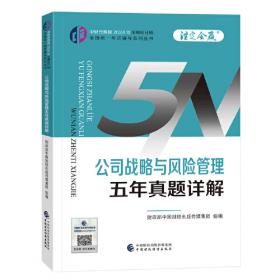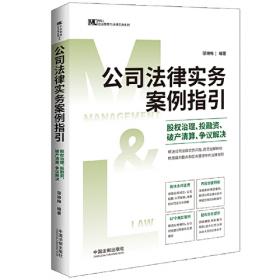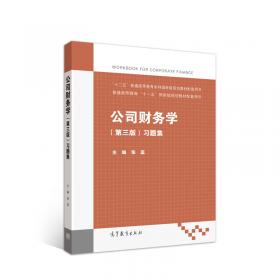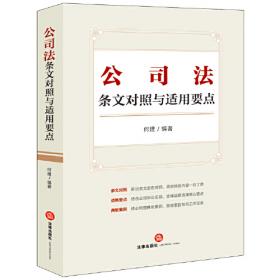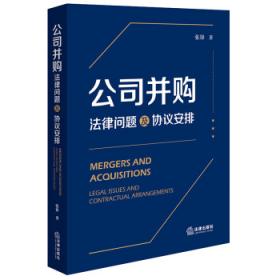公司法基础(影印本)
出版时间:
2005-03
版次:
1
ISBN:
9787503653070
定价:
45.00
装帧:
平装
-
这十年经历了一场公司法革命。在这不同寻常的十年期间,业界创新了商业组织结构和兼并行为模式,而公司法领域的理论也由于引进了经济学的组织理论和现代公司金融理论等分析方法而大为改观。这种对经济学理论的融合深刻影响了公司运作方式以及公司法教学,而这种影响将持续下去。这本论文集着重介绍了公司法领域迥然对立的各种理论,以及这些理论得以产生的经济学基本原理。此外,我们通过提供公司治理方面广泛而繁茂的实证研究成果,努力用写实的手法给学子们描绘出对他们而言很陌生的公司法研究概况。
因阿道夫·伯利和加德纳·米恩斯二人对所有权和经营权分离带来的问题之深刻分析,公众持股公司的重要特点变得明晰:公司经营业务的经理层并不拥有该公司。伯利和米恩斯认为这种分离产生了许多组织上的弊端,因为公司所有人的利益并不总是与经理层一致。这类问题被称为代理问题。正如这本论文集所阐释的,公司法的大部分内容就是在探讨如何处理代理问题。本书收集的论文运用经济学组织理论和公司金融理论从不同角度对这一问题展开剖析,并分别提出了不同的解决方案。
我本人曾在公司法和公司金融等课堂上使用本书中的材料。编辑本书时我们有意将其做成供学生在公司法课堂讨论的教材,同时,体例上我们在每一章节安排了要点与问题,以便读者能独立阅读并自我指导。论文均经过多方面编辑加工,使其更好用。我们将初稿里的数学计算和公式进行了压缩,但要点里的数据原封不动,以阐释某些概念。当然这种做法很危险,因为失却了学术著述的复杂性,而且留给人一种错误的印象,即创建一个理论不会引起理解上的歧义。为尽量避免这种误识,我有意将观点大相径庭的相关论文及随后的要点并列编排在一起。此外,论文节录中的参考书目和脚注均已省去——为增强可读性和更适合教学,只好牺牲各论文节录的精确性和查阅引文出处的便捷性了。读者若对节录感兴趣,可以查找原论文。 罗伯塔·罗曼诺于1975年获得芝加哥大学经济学硕士学位,1980年获耶鲁大学法律博士学位,1985年起任耶鲁大学教授,研究领域是公司法、公司金融和金融市场监管。罗曼诺自1998年起承担《法律经济学评论》的编辑工作,并于1998-1999年间担任美国法律经济学协会主席。 ⅠTheoryoftheFirmandCapitalMarkets,1
A.TheoryoftheFirm,4
TheoryoftheFirm:ManagerialBehavior,Agency
Costs,and
OwnershipStructure,4
MichaelC.JensenandWilliamH.Meckling
TransactionCostEconomics,9
OliverE.Williamson
OwnershipoftheFirm,15
HenryHansmann
NotesandQuestions,22
B.TheoryofCapitalMarkets,26
FromARandomWalkDownWallStreet,26
BurtonG.Malkiel
FromCorporateFinance,43
StephenA.Ross,RandolphW.Westerfield,and
JeffreyF.Jaffe
NotesandQuestions,57
ⅡLegalCharacteristicsoftheCorporation:Limited
Liability,61
LimitedLiabilityandtheCorporation,62
FrankH.EasterbrookandDanielR.Fischel
LimitedLiabilityintheTheoryoftheFirm,70
SusanE.Woodward
TowardUnlimitedShareholderLiabilityfor
Corporate
Torts,73
HenryHansmannandReinierKraakman
NotesandQuestions,78
ⅢTheProductionofCorporationLaws,82
A.StateCompetitionforCorporateCharters,84
TheStateCompetitionDebateinCorporateLaw,84
RobertaRomano
TowardanInterestGroupTheoryofDelaware
Corporate
Law,90
JonathanR.MaceyandGeoffreyP.Miller
NotesandQuestions,93
B.TheStructureofCorporationLaws,96
TheCorporateContract,96
FrankH.EasterbrookandDanielR.Fischel
TheMandatoryStructureofCorporateLaw,104
JeffreyN.Gordon
TheMandatory/EnablingBalanceinCorporateLaw:An
Essay
ontheJudicialRole,111
JohnC.Coffee,Jr.
NotesandQuestions,113
ⅣFinancingtheCorporation,119
OnFinancialContracting:AnAnalysisofBond
Covenants,121
CliffordW.Smith,Jr.,andJeroldB.Warner
ContractualResolutionofBondholder-Stockholder
Conflicts
inLeveragedBuyouts,128
KennethLehnandAnnettePoulsen
ActiveInvestors,LBOs,andthePrivatizationof
Bankruptcy,130
MichaelC.Jensen
TheStructureandGovernanceofVentureCapital
Organizations,132
WilliamA.Sahlman
TwoAgency-CostExplanationsofDividends,138
FrankH.Easterbrook
NotesandQuestions,140
ⅤInternalGovernanceStructures,146
A.BoardsofDirectorsandFiduciaryDuties,148
CorporateGovernance,148
OliverE.Williamson
IncentiveandTaxEffectsofExecutiveCompensation
Plans,155
CliffordW.Smith,Jr.andRossL.Watts
TheShareholderSuit:LitigationWithout
Foundation?,162
RobertaRomano
Does"Unlawful"Mean"Criminal"?:Reflectionson
the
DisappearingTort/CrimeDistinctioninAmerican
Law,173
JohnC.Coffee,Jr.,
NotesandQuestions,179
B.ShareholderVotingRightsandtheExerciseof
Voice,187
VotinginCorporateLaw,187
FrankH.EasterbrookandDanielR.Fischel
TiesthatBond:DualClassCommonStockandthe
Problemof
ShareholderChoice,192
JeffreyN.Gordon
ProxyContestsandtheEfficiencyofShareholder
Oversight,197
JohnPound
APoliticalTheoryofAmericanCorporateFinance,
206
MarkJ.Roe
AgentsWatchingAgents:ThePromiseof
Institutional
InvestorVoice,210
BernardS.Black
ActiveInvestors,LBOs,andthePrivatizationof
Bankruptcy,
213
MichaelC.Jensen
NotesandQuestions,214
ⅥExternalGovernanceStructures:TheMarketfor
Corporate
Control,221
A.TheoriesandEvidence,223
MergersandtheMarketforCorporateControl,223
HenryG.Manne
Takeovers:TheirCausesandConsequences,225
MichaelC.Jensen
BreachofTrustinHostileTakeovers,228
AndreiShleiferandLawrenceH.Summers
RiskReductionasaManagerialMotivefor
Conglomerate
Mergers,232
YakovAmihudandBaruchLev
TheHubrisHypothesisofCorporateTakeovers,233
RichardRoll
TheMarketforCorporateControl:TheScientific
Evidence,235
MichaelC.JensenandRichardS.Ruback
TheMarketforCorporateControl:TheEmpirical
Evidence
Since1980,242
GreggA.Jarrell,JamesA.Brickley,andJeffry
M.Netter
HostileTakeoversinthe1980s:TheReturnto
Corporate
Specialization,245
SanjaiBhagat,AndreiShleifer,andRobertW.
Vishny
NotesandQuestions,248
B.Management’sFiduciaryDutyandTakeover
Defenses,258
TheProperRoleofaTarget’sManagementin
Respondingtoa
TenderOffer,258
FrankH.EasterbrookandDanielR.Fischel
SeekingCompetitiveBidsVersusPurePassivityin
Tender
OfferDefense,262
RonaldJ.Gilson
TheCaseforFacilitatingCompetingTenderOffers:
AReply
andExtension,265
LucianA.Bebchuk
TheMarketforCorporateControl:TheEmpirical
Evidence
Since1980,267
GreggA.Jarrell,JamesA.Brickley,andJeffry
M.Netter
TheWealthEffectsofSecond-GenerationState
Takeover
Legislation,272
JonathanM.KarpoffandPaulH.Malatesta
TheFutureofHostileTakeovers:Legislationand
Public
Opinion,278
RobertaRomano
NotesandQuestions,285
ⅦSecuritiesRegulation,293
A.DisclosureRegulation,295
MandatoryDisclosureandtheProtectionof
Investors,295
FrankH.EasterbrookandDanielR.Fischel
MarketFailureandtheEconomicCasefora
Mandatory
DisclosureSystem,301
JohnC.Coffee,Jr.
TheEffectofthe1933SecuritiesActonInvestor
Information
andthePerformanceofNewIssues,303
CarolJ.Simon
NotesandQuestions,305
B.InsiderTradingRegulation,310
InsiderTrading:Rule10b-5,Disclosure,and
Corporate
Privacy,310
KennethE.Scott
TheRegulationofInsiderTrading,313
DennisW.CarltonandDanielR.Fischel
NotesandQuestions,317
-
内容简介:
这十年经历了一场公司法革命。在这不同寻常的十年期间,业界创新了商业组织结构和兼并行为模式,而公司法领域的理论也由于引进了经济学的组织理论和现代公司金融理论等分析方法而大为改观。这种对经济学理论的融合深刻影响了公司运作方式以及公司法教学,而这种影响将持续下去。这本论文集着重介绍了公司法领域迥然对立的各种理论,以及这些理论得以产生的经济学基本原理。此外,我们通过提供公司治理方面广泛而繁茂的实证研究成果,努力用写实的手法给学子们描绘出对他们而言很陌生的公司法研究概况。
因阿道夫·伯利和加德纳·米恩斯二人对所有权和经营权分离带来的问题之深刻分析,公众持股公司的重要特点变得明晰:公司经营业务的经理层并不拥有该公司。伯利和米恩斯认为这种分离产生了许多组织上的弊端,因为公司所有人的利益并不总是与经理层一致。这类问题被称为代理问题。正如这本论文集所阐释的,公司法的大部分内容就是在探讨如何处理代理问题。本书收集的论文运用经济学组织理论和公司金融理论从不同角度对这一问题展开剖析,并分别提出了不同的解决方案。
我本人曾在公司法和公司金融等课堂上使用本书中的材料。编辑本书时我们有意将其做成供学生在公司法课堂讨论的教材,同时,体例上我们在每一章节安排了要点与问题,以便读者能独立阅读并自我指导。论文均经过多方面编辑加工,使其更好用。我们将初稿里的数学计算和公式进行了压缩,但要点里的数据原封不动,以阐释某些概念。当然这种做法很危险,因为失却了学术著述的复杂性,而且留给人一种错误的印象,即创建一个理论不会引起理解上的歧义。为尽量避免这种误识,我有意将观点大相径庭的相关论文及随后的要点并列编排在一起。此外,论文节录中的参考书目和脚注均已省去——为增强可读性和更适合教学,只好牺牲各论文节录的精确性和查阅引文出处的便捷性了。读者若对节录感兴趣,可以查找原论文。
-
作者简介:
罗伯塔·罗曼诺于1975年获得芝加哥大学经济学硕士学位,1980年获耶鲁大学法律博士学位,1985年起任耶鲁大学教授,研究领域是公司法、公司金融和金融市场监管。罗曼诺自1998年起承担《法律经济学评论》的编辑工作,并于1998-1999年间担任美国法律经济学协会主席。
-
目录:
ⅠTheoryoftheFirmandCapitalMarkets,1
A.TheoryoftheFirm,4
TheoryoftheFirm:ManagerialBehavior,Agency
Costs,and
OwnershipStructure,4
MichaelC.JensenandWilliamH.Meckling
TransactionCostEconomics,9
OliverE.Williamson
OwnershipoftheFirm,15
HenryHansmann
NotesandQuestions,22
B.TheoryofCapitalMarkets,26
FromARandomWalkDownWallStreet,26
BurtonG.Malkiel
FromCorporateFinance,43
StephenA.Ross,RandolphW.Westerfield,and
JeffreyF.Jaffe
NotesandQuestions,57
ⅡLegalCharacteristicsoftheCorporation:Limited
Liability,61
LimitedLiabilityandtheCorporation,62
FrankH.EasterbrookandDanielR.Fischel
LimitedLiabilityintheTheoryoftheFirm,70
SusanE.Woodward
TowardUnlimitedShareholderLiabilityfor
Corporate
Torts,73
HenryHansmannandReinierKraakman
NotesandQuestions,78
ⅢTheProductionofCorporationLaws,82
A.StateCompetitionforCorporateCharters,84
TheStateCompetitionDebateinCorporateLaw,84
RobertaRomano
TowardanInterestGroupTheoryofDelaware
Corporate
Law,90
JonathanR.MaceyandGeoffreyP.Miller
NotesandQuestions,93
B.TheStructureofCorporationLaws,96
TheCorporateContract,96
FrankH.EasterbrookandDanielR.Fischel
TheMandatoryStructureofCorporateLaw,104
JeffreyN.Gordon
TheMandatory/EnablingBalanceinCorporateLaw:An
Essay
ontheJudicialRole,111
JohnC.Coffee,Jr.
NotesandQuestions,113
ⅣFinancingtheCorporation,119
OnFinancialContracting:AnAnalysisofBond
Covenants,121
CliffordW.Smith,Jr.,andJeroldB.Warner
ContractualResolutionofBondholder-Stockholder
Conflicts
inLeveragedBuyouts,128
KennethLehnandAnnettePoulsen
ActiveInvestors,LBOs,andthePrivatizationof
Bankruptcy,130
MichaelC.Jensen
TheStructureandGovernanceofVentureCapital
Organizations,132
WilliamA.Sahlman
TwoAgency-CostExplanationsofDividends,138
FrankH.Easterbrook
NotesandQuestions,140
ⅤInternalGovernanceStructures,146
A.BoardsofDirectorsandFiduciaryDuties,148
CorporateGovernance,148
OliverE.Williamson
IncentiveandTaxEffectsofExecutiveCompensation
Plans,155
CliffordW.Smith,Jr.andRossL.Watts
TheShareholderSuit:LitigationWithout
Foundation?,162
RobertaRomano
Does"Unlawful"Mean"Criminal"?:Reflectionson
the
DisappearingTort/CrimeDistinctioninAmerican
Law,173
JohnC.Coffee,Jr.,
NotesandQuestions,179
B.ShareholderVotingRightsandtheExerciseof
Voice,187
VotinginCorporateLaw,187
FrankH.EasterbrookandDanielR.Fischel
TiesthatBond:DualClassCommonStockandthe
Problemof
ShareholderChoice,192
JeffreyN.Gordon
ProxyContestsandtheEfficiencyofShareholder
Oversight,197
JohnPound
APoliticalTheoryofAmericanCorporateFinance,
206
MarkJ.Roe
AgentsWatchingAgents:ThePromiseof
Institutional
InvestorVoice,210
BernardS.Black
ActiveInvestors,LBOs,andthePrivatizationof
Bankruptcy,
213
MichaelC.Jensen
NotesandQuestions,214
ⅥExternalGovernanceStructures:TheMarketfor
Corporate
Control,221
A.TheoriesandEvidence,223
MergersandtheMarketforCorporateControl,223
HenryG.Manne
Takeovers:TheirCausesandConsequences,225
MichaelC.Jensen
BreachofTrustinHostileTakeovers,228
AndreiShleiferandLawrenceH.Summers
RiskReductionasaManagerialMotivefor
Conglomerate
Mergers,232
YakovAmihudandBaruchLev
TheHubrisHypothesisofCorporateTakeovers,233
RichardRoll
TheMarketforCorporateControl:TheScientific
Evidence,235
MichaelC.JensenandRichardS.Ruback
TheMarketforCorporateControl:TheEmpirical
Evidence
Since1980,242
GreggA.Jarrell,JamesA.Brickley,andJeffry
M.Netter
HostileTakeoversinthe1980s:TheReturnto
Corporate
Specialization,245
SanjaiBhagat,AndreiShleifer,andRobertW.
Vishny
NotesandQuestions,248
B.Management’sFiduciaryDutyandTakeover
Defenses,258
TheProperRoleofaTarget’sManagementin
Respondingtoa
TenderOffer,258
FrankH.EasterbrookandDanielR.Fischel
SeekingCompetitiveBidsVersusPurePassivityin
Tender
OfferDefense,262
RonaldJ.Gilson
TheCaseforFacilitatingCompetingTenderOffers:
AReply
andExtension,265
LucianA.Bebchuk
TheMarketforCorporateControl:TheEmpirical
Evidence
Since1980,267
GreggA.Jarrell,JamesA.Brickley,andJeffry
M.Netter
TheWealthEffectsofSecond-GenerationState
Takeover
Legislation,272
JonathanM.KarpoffandPaulH.Malatesta
TheFutureofHostileTakeovers:Legislationand
Public
Opinion,278
RobertaRomano
NotesandQuestions,285
ⅦSecuritiesRegulation,293
A.DisclosureRegulation,295
MandatoryDisclosureandtheProtectionof
Investors,295
FrankH.EasterbrookandDanielR.Fischel
MarketFailureandtheEconomicCasefora
Mandatory
DisclosureSystem,301
JohnC.Coffee,Jr.
TheEffectofthe1933SecuritiesActonInvestor
Information
andthePerformanceofNewIssues,303
CarolJ.Simon
NotesandQuestions,305
B.InsiderTradingRegulation,310
InsiderTrading:Rule10b-5,Disclosure,and
Corporate
Privacy,310
KennethE.Scott
TheRegulationofInsiderTrading,313
DennisW.CarltonandDanielR.Fischel
NotesandQuestions,317
查看详情
-
八五品
山西省运城市
平均发货10小时
成功完成率97.68%
-
八五品
湖北省武汉市
平均发货14小时
成功完成率96.18%
-
九品
北京市丰台区
平均发货15小时
成功完成率90.36%
-
九品
山东省菏泽市
平均发货7小时
成功完成率97.07%
-
八五品
上海市奉贤区
平均发货11小时
成功完成率95.05%
-
九品
北京市海淀区
平均发货7小时
成功完成率93.64%
-
九品
北京市通州区
平均发货6小时
成功完成率92.8%
-
八五品
-
2005-03 印刷
印次: 1
七五品
河南省濮阳市
平均发货21小时
成功完成率96.51%
-
九品
北京市通州区
平均发货6小时
成功完成率97.57%
-
九品
四川省成都市
平均发货27小时
成功完成率84.87%
-
九品
北京市海淀区
平均发货30小时
成功完成率91.48%
-
九五品
北京市海淀区
平均发货5天内
成功完成率86.44%
-
2005-03 印刷
印次: 1
九品
北京市海淀区
平均发货7小时
成功完成率93.64%

 占位居中
占位居中

